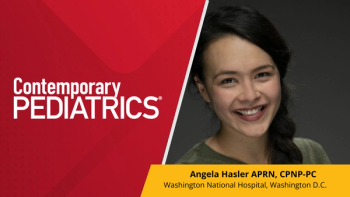
Discussing unintentional firearm injuries among children, and how preventable they can be
In this Contemporary Pediatrics interview, Steven Selbst, MD, talks about how preventable unintentional firearm injuries in children can be, as he references an uptick in these cases in his emergency department.
In light of recent data released by the Centers for Disease Control and Prevention's (CDC) Morbidity and Mortality Weekly Report highlighting unintentional firearm injury deaths among children, Steven Selbst, MD, joins Contemporary Pediatrics to discuss why these often preventable deaths occur.
READ MORE - CDC: Unlocked, loaded firearms significantly contribute to accidental firearm deaths in children
Interview transcript (edited for clarity):
Contemporary Pediatrics:
Have you noticed an increase in unintentional firearm injury deaths in your pediatric emergency department?
Steven Selbst, MD:
I think we have noticed a bit of an uptick. Fortunately, it's still not an everyday occurrence, it's still relatively rare, at least in our emergency department. Perhaps in other emergency departments, it's more common, but we do see it and we've seen more than we did in the past. I think these injuries in particular are tragic, these unintentional ones, because they are preventable.
If parents would lock the gun or keep the gun stored without the ammunition, it would be preventable, but parents don't do that. I think the authors of this study pointed that out. Parents are afraid that, "well, if I lock the gun and there's no ammunition in the gun, I won't have it available to me in an emergency when I need it."
But the fact is, it's much more likely your child is going to die from that unlocked loaded gun, than you're going to use it in an emergency on an intruder or something like that. So children are really at greater risk for death when parents don't lock the guns and don't store the ammunition separately from the gun.
This is not a surprise to me that we, we hear about children all the time picking up a gun in the house, and shooting someone else accidentally or shooting themselves accidentally. There was just in Philadelphia, I think a 5 year old whoshot himself. It is usually, just as the CDC pointed out, a gun that belongs to the parent, and it's left in a place where it's in reach of the child.
That's what see, the child picks it up on a shelf or in the bed or under the pillow, under the bed and parents think that it's hidden from the child. But a young child finds that gun and thinks it's a toy.
There's a misbelief that all kids will know the difference between a gun and a toy, but that isn't true. There are studies to show that that isn't true.
It is very frustrating. Pediatricians across the country talk to parents all the time about gun storage. It's one of the questions that's asked almost routinely now at well child care visits.
"Is there a gun in the house? Do you have the gun locked?" Reminding parents that when the child goes somewhere else, when they go to a babysitter or they go to a playgroup or to a friend's house, they should be asking those parents is there a gun in your house because that could happen too. You may protect your own house, but then the child goes to a friend and parents don't realize there's a gun in that house and that child is at risk when they go somewhere else.
Pediatricians are constantly reminding families about this, but there's still a great risk in this country because I think of the parent's misconception that it's safe to keep a loaded gun unlocked in the house. There are some cities that offer free locks to gun owners.
There are programs out there, not every city, not every township, but I know there are some that will do that. But families are resistant to take those free locks because of the reasons we just mentioned.
I think legislation certainly always helps. I think there are now penalties for when this happens, it doesn't bring the child back, the child's already dead, but when that happens, in many situations, the family is held responsible for that death. Someone is held responsible and they should be. This is child neglect. If there's a gun within reach of a young child, you should be held responsible for child neglect and responsible for that death of that child. So that is often the case in many states where the parent or the guardian or the gun owner will be charged in a crime when a child is injured by a gun, but that doesn't seem to be a deterrent.
Though, hopefully if the word gets out to many parents that "I am legally responsible if something happens," maybe that will encourage families to take more precautions, but so far it hasn't worked that way.
READ MORE - CDC: Unlocked, loaded firearms significantly contribute to accidental firearm deaths in children
Steven Selbst, MD, is an attending physician, pediatric emergency medicine at Nemours/Alfred I. duPont Hospital for Children, Wilmington, Delaware, and a Editorial Advisory Board member for Contemporary Pediatrics.
Newsletter
Access practical, evidence-based guidance to support better care for our youngest patients. Join our email list for the latest clinical updates.








